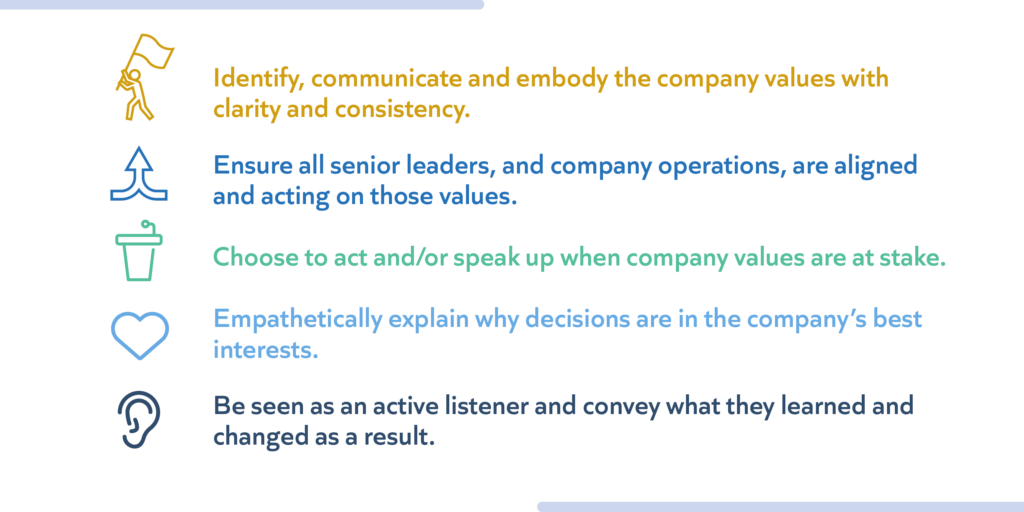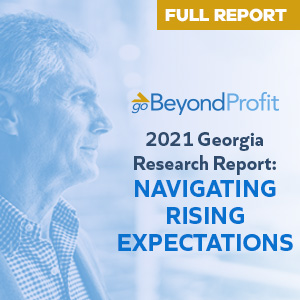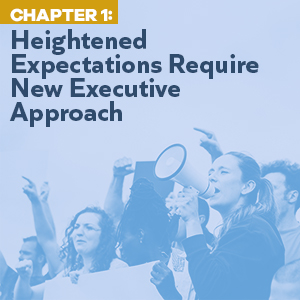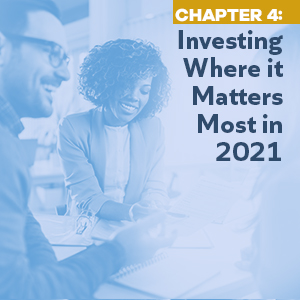Chapter 2
The Mandate to Speak Up: Deciding When and Managing Missteps
Summary: Leaders are expected to engage on key issues, especially ones most pertinent to their workforce or consumers. The calculus for when to speak up is difficult and the fear of making a misstep is real, but people will forgive leaders who own mistakes and demonstrate the desire to learn and grow in their understanding. Empathetic engagement will foster alignment and make room to “agree to disagree” with others.
Executives are expected to speak up. The research leaves no doubt that employed adults (91%) and senior leaders (79%) alike expect executives to share their point of view about sensitive social issues.
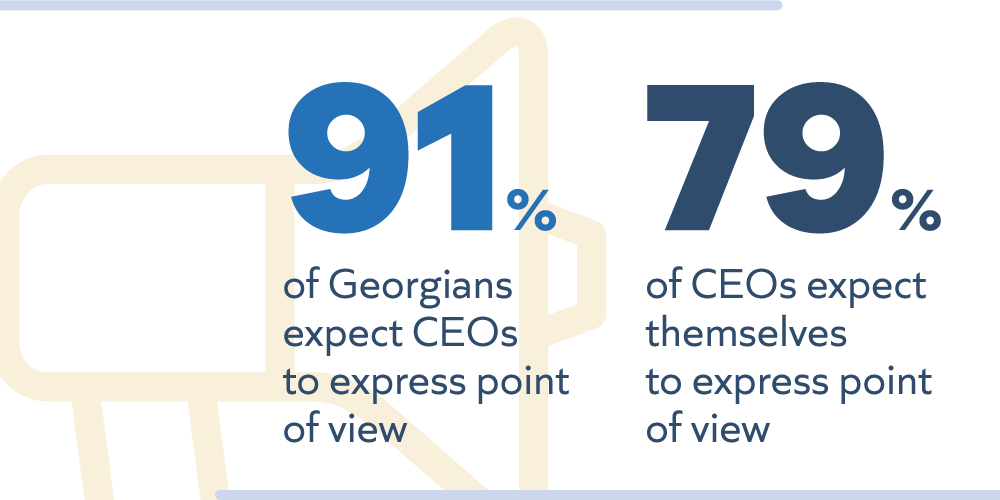
This doesn’t mean companies should always speak up, of course. But they should always be intentional about whether and how they choose to state a public opinion. Current events show a company’s silence can be held up as a demonstration of its values as well.
The major question of course is when and what happens when leaders inevitably alienate some constituents with their choice of words, or their silence.
The research insights provide a helpful risk-reward analysis.

Relevance to stakeholders is key.
Clarity comes by checking the social issue or topic against its relevancy to the core business or workplace culture. Employees especially expect senior leaders to speak when the social issue directly aligns with the needs of employees (50%) or when the issue is deemed important to customers (47%). In addition, there’s energy for speaking about issues that are integral to a business’s operations or sector (42%).
Business executives agree that sharing a point of view is more appropriate when the issue directly impacts their people – employees (57%) and customers (54%).
How to predict and avoid backlash.
Potential backlash is an important consideration in choosing when to speak out about sensitive issues. The research explored when Georgians are likely to act or speak negatively if they disagree with a business leader’s expressed opinion.
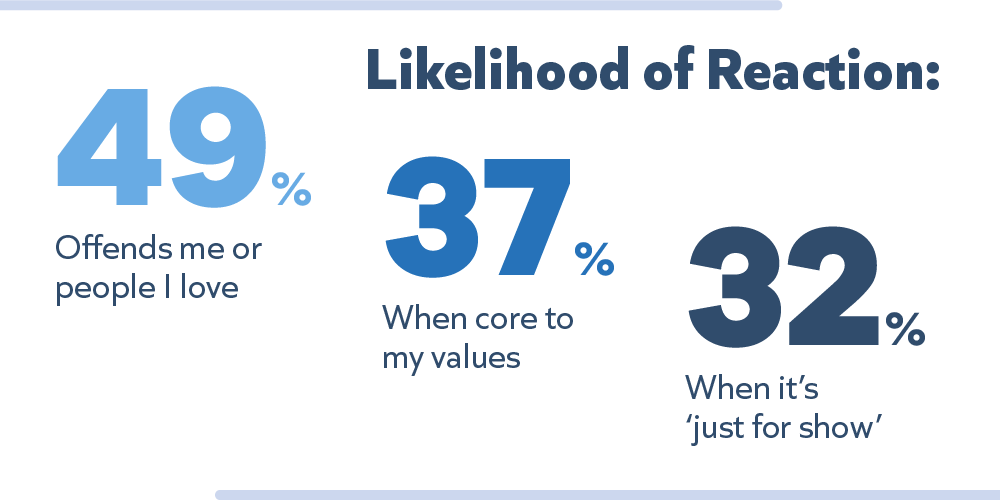
Unsurprisingly, the two main predictors revolve around how stakeholder’s individual values align with an executive’s expressed opinion or action. Just under half (49%) of adults say they’re most likely to act if the business leader is “acting in ways that offend me or people I love.” And 37% cited when the issue is core to their own personal values.
One of the three main backlash predictors is fully in executives’ control: 32% say they’re likely to act if the opinion is “performative” or “only doing it for show.”
This characterization comes when companies exhibit “empty” words that are deemed inauthentic or not backed by actions. Common complaints include companies posting comments supporting women or people of color when those employees are not seen as well cared for, or companies signaling support for the planet without strong environmental practices of their own.
Overarching conclusions are that public statements resonate best when they are relevant to core operations and reinforced by core values already in place and visibly reinforced internally as well as externally.
Forgiveness available for missteps.
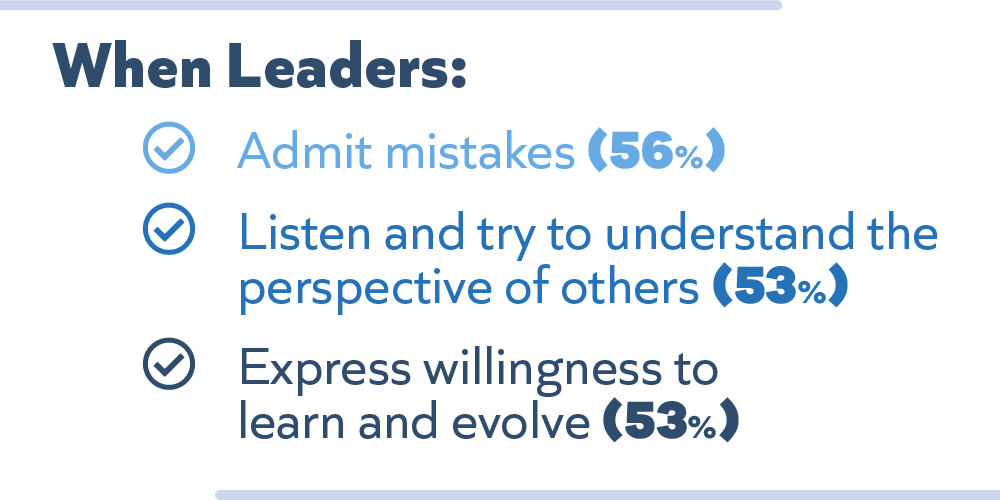
Thankfully, people stand ready to forgive senior executives for a mistake or misstep when they share a public point of view that offends. Which actions are most valued and earn that forgiveness?
Slightly less than half (44%) say they can forgive if the executive is respectful of their views and they can agree to disagree.
Note that past kindness and caring in general doesn’t earn forgiveness. Only 31% will forgive a misstep based on executives’ past positive behavior.
People will forgive a misstep. What’s important is the leader’s next step.
What if you choose not to make a public statement?
We asked the question in a subsequent June poll of 600 employed Georgians and the answer is, as a whole, people are unlikely to take statistically significant action – positive or negative – if you choose not to make a public statement on a controversial issue.
This research showed that more than half of people (55%) notice when their employer and, to a lesser degree, favorite brands (50%) do not make a statement about the controversial issues they care most about.
But what actions will people take if a company says nothing? As consumers, roughly 16% rewarded a brand’s silence with their purchasing power and 12% recommended the brand to others. Only 9% stopped purchasing as a result and the numbers go down from here with only 4% complaining or trying to influence others to stop purchasing.
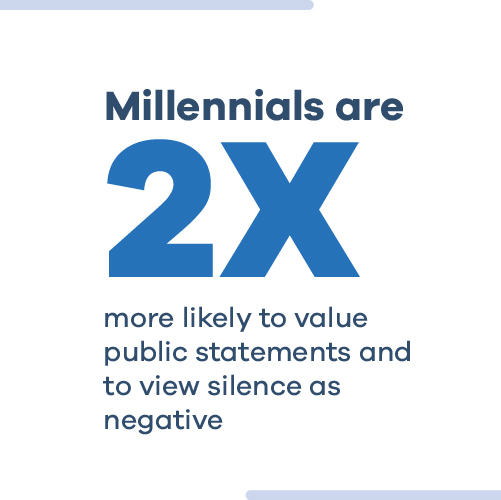
And as employees, the respondents were even less likely to take action – positive or negative – with only 3% claiming they starting looking for another job and 1% who left their employer.
People assume a company’s public silence is a reaction to the risks. A bit more than half assume lack of a statement is a company’s choice based on the risks of doing so, a quarter assume businesses don’t feel it’s their place to speak out. And of particular note regarding values: 17% assume leaders don’t see a problem with the way things are.
Everything is 2x for those under 35. Younger employees are twice as likely to see public statements as important (86%), twice as likely to see lack of engagement as negative and twice as likely to take action in response.
The CEO voice as Chief Empathy Officer.
Executives increasingly need to find their public voice on issues that are important to their people. While it is impossible to please everyone, the data shows a strong path for leaders who demonstrate values-based empathy and “Emotional Generosity.” Specific priorities include:
